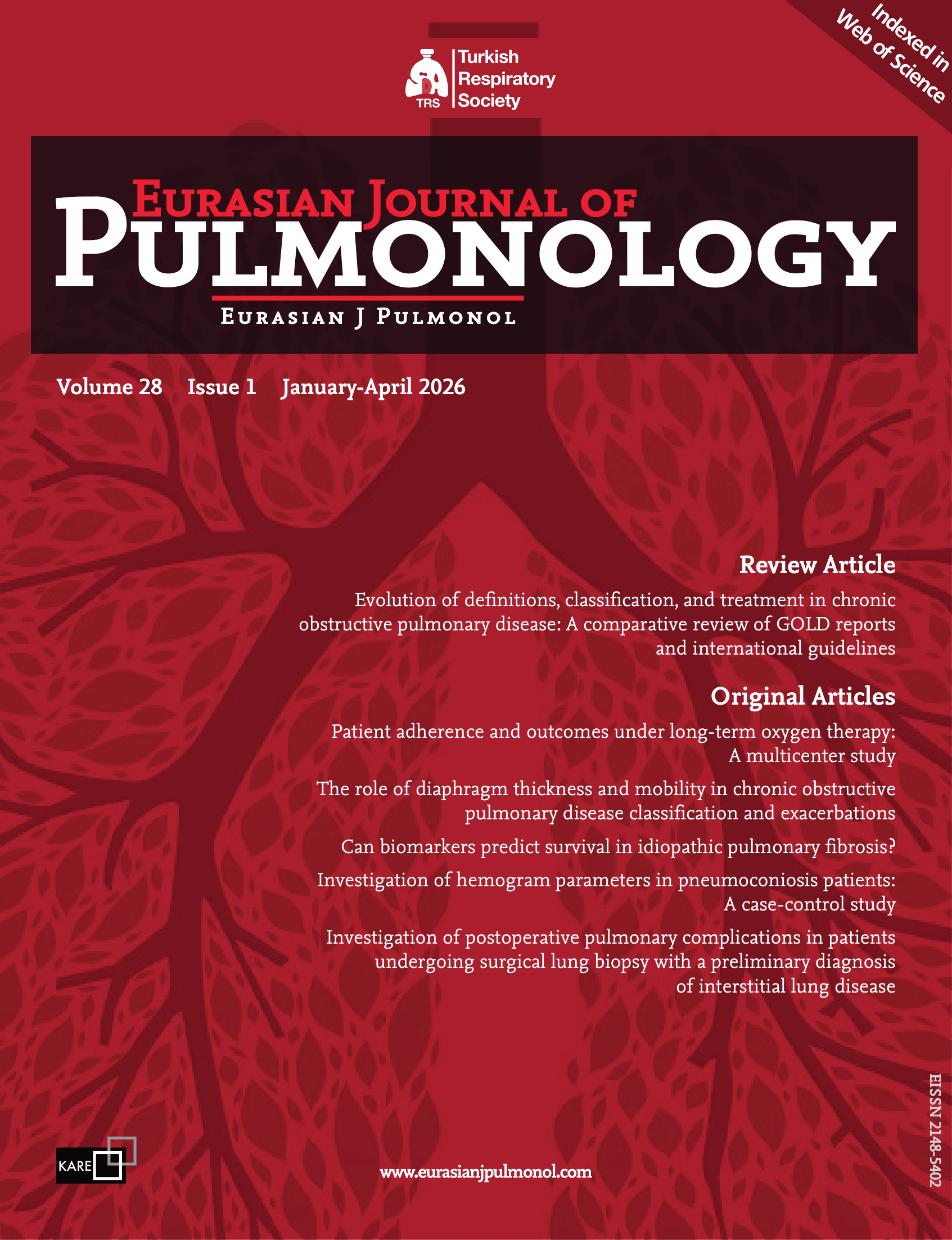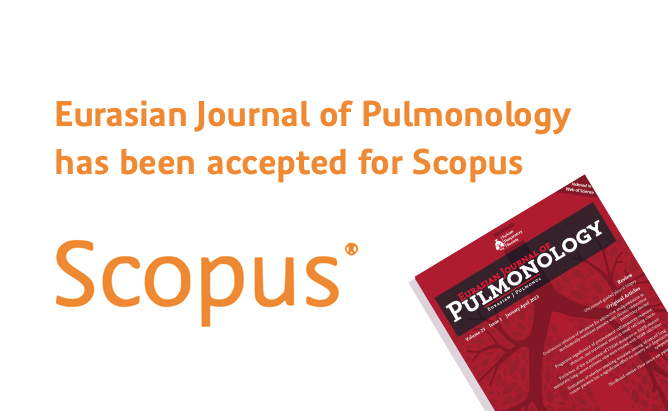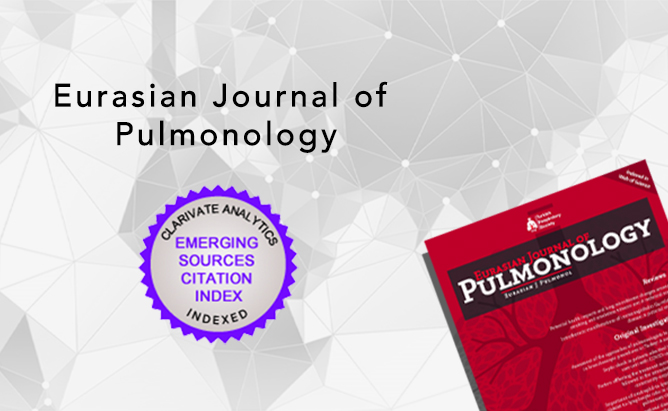2Department of Chest Diseases, Hacettepe University Medical Faculty, Ankara, Turkey
3Department of Chest Diseases, Izmir Dr. Suat Seren Training and Research Hospital for Thoracic Medicine and Surgery, Health Sciences University, İzmir, Turkey
4Department of Chest Diseases, Ufuk University Medical Faculty, Ankara, Turkey
5Clinic of Thoracic Surgery, University of Heath Sciences Süreyyapaşa Chest Diseases and Thoracic Surgery Training and Research Hospital, İstanbul, Turkey
6Department of Chest Diseases, Ege University Medical Faculty, İzmir, Turkey
7Eskisehir Osmangazi University Lung and Pleural Cancers Research and Clinical Center, Eskisehir, Turkey
Abstract
Pleural effusion is a common clinical entity. Pleural procedures performed for the diagnosis and management of pleural effusions may increase the risk of bleeding, especially in patients with coagulopathies and comorbidities and those in need for antithrombotic drugs. Current literature provides sparse, low level of evidence, which is insufficient for safe implementation of pleural procedures among these patients. Thoracentesis, pleural biopsy (closed or percutaneous), catheter or chest tube drainage, and thoracoscopy are the main pleural procedures performed in these patients. Considering the bleeding risk associated with a specific pleural procedure, the risk is low for thoracentesis, moderate for insertion or removal of the chest tube or tunneled catheter, and moderate high for pleural biopsies and thoracoscopy. The current statement is prepared mainly for the pulmonologists and intended to provide recommendations to reduce the risk of bleeding following pleural procedures. The management of bleeding complication is out of the scope of this statement.




 Nilgun Yilmaz Demirci1
Nilgun Yilmaz Demirci1 




